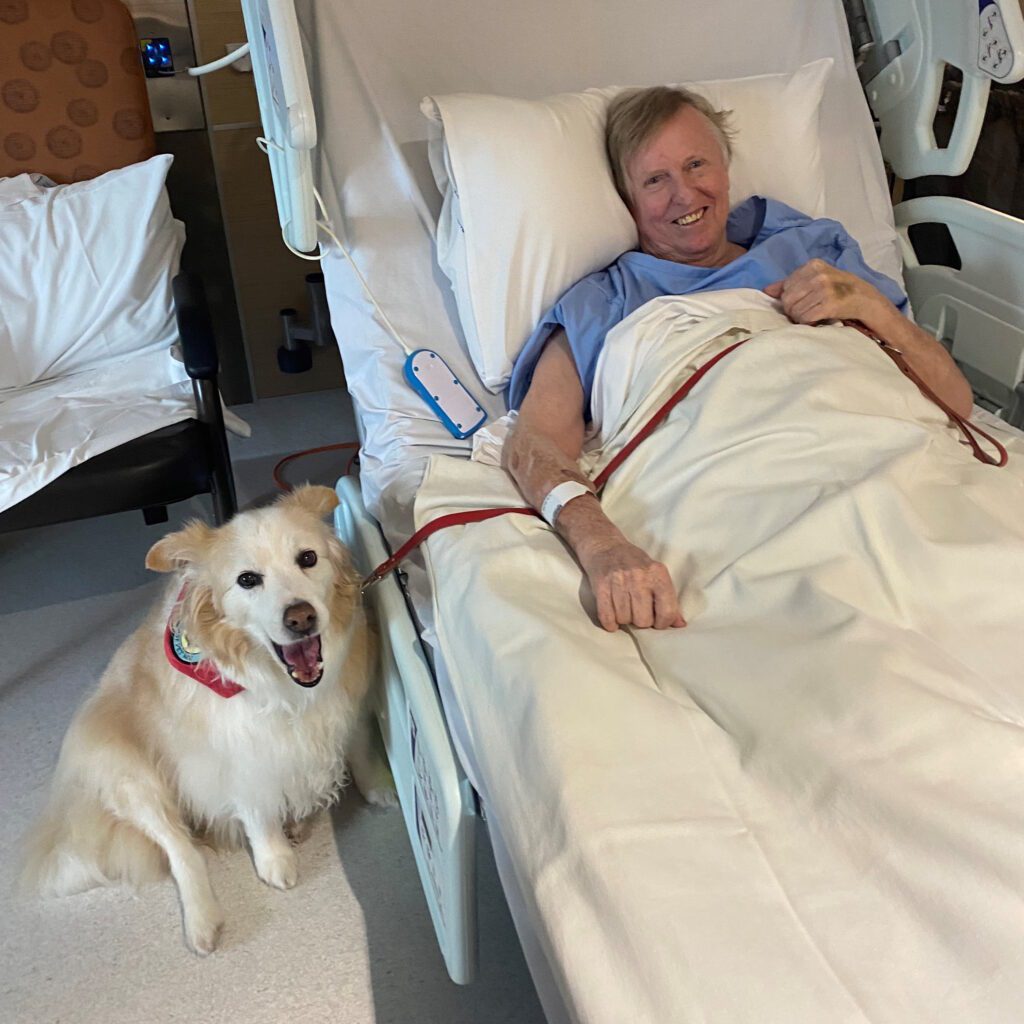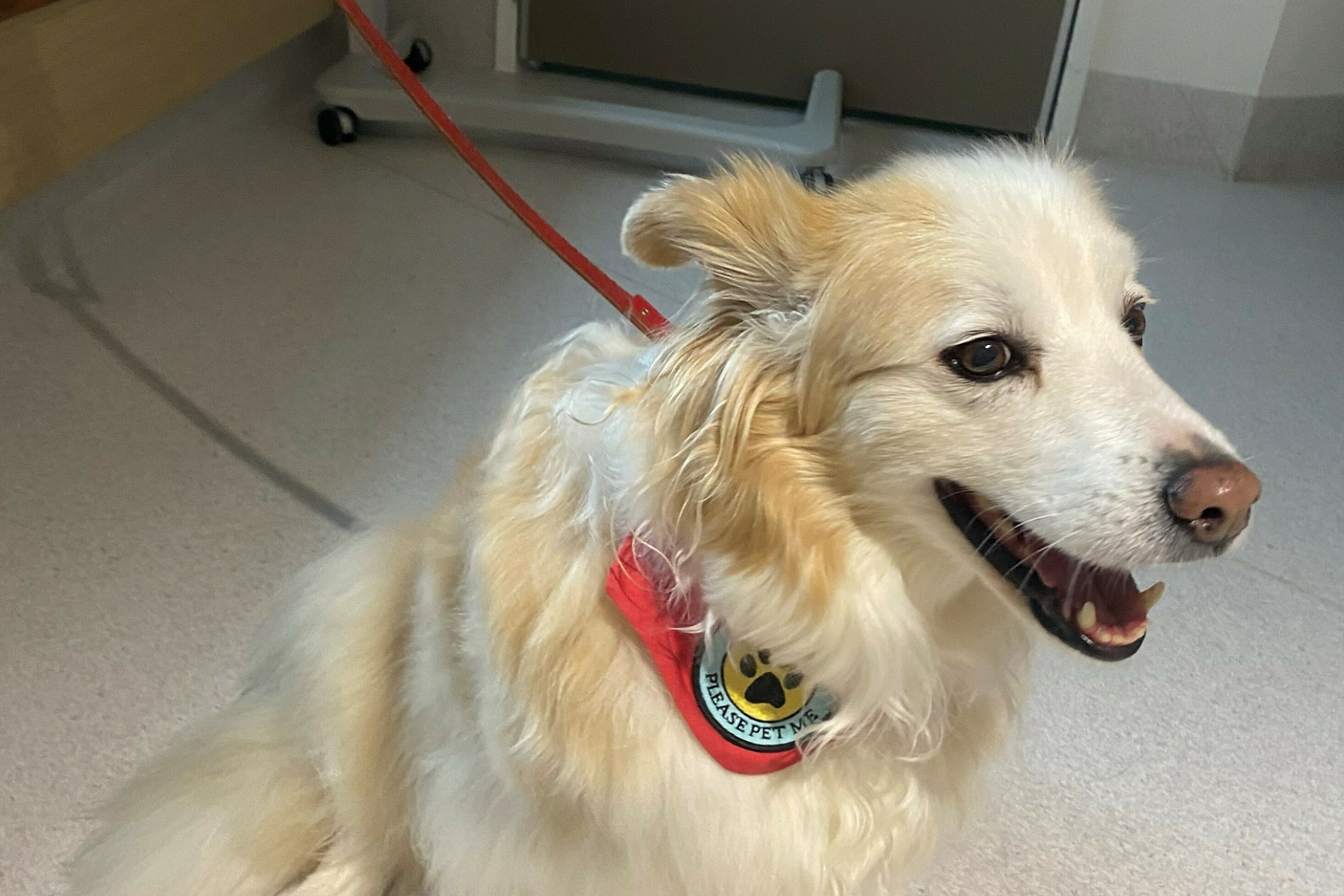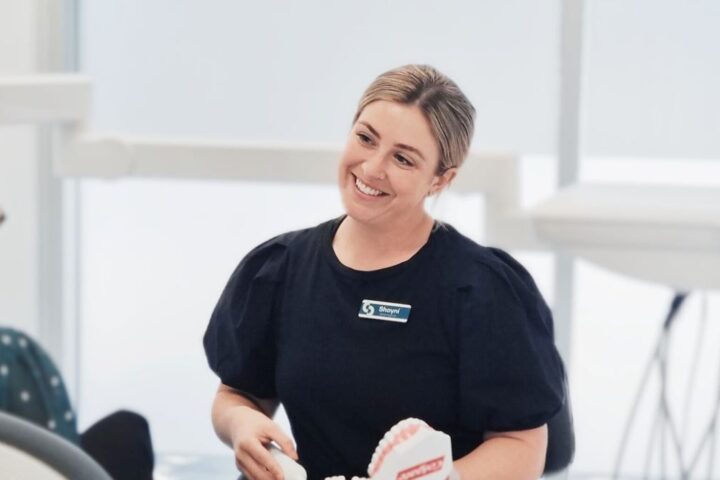The DOgSS project (Dogs Offering Support after Stroke) is being funded by The Hospital Research Foundation Group and led by Associate Professor Anne Hamilton-Bruce, Co-Director of the Stroke Research Program at the Royal Adelaide Hospital and a senior neurology researcher with the University of Adelaide and SAHMRI.
A/Prof Hamilton-Bruce said stroke can be a very traumatic event, with devastating emotional impacts on patients as well as their family and friends.

She said there was evidence that showed pet therapy brought positive outcomes for patients, their support networks and staff; and for the first time, this study would assess how the visits affected the dogs too.
“Previous studies by other researchers of animal-assisted interventions have shown that the presence of an animal can be calming for some patients, lowering blood pressure, heart rate and stress,” A/Prof Hamilton-Bruce said.
“This may help to maximise the benefits of clinical interventions that have shown to help recovery, but which can be frustrated by emotional experiences.”
“We will be assessing the patient’s mood with a 10-point Likert scale and Pick-a-Mood ‘smiley’ faces survey, plus we are also seeing whether visitors, hospital staff and the dog handler are affected by the visit.”
“We also observe the behaviour of the dogs to see if they are being stressed by the experience.”
The project has been run by a multi-disciplinary team from the Central Adelaide Local Health Network, University of Adelaide and University of South Australia, with the visiting dogs from Therapeutic Dogs Services Inc.
The dogs and their handlers are fully trained, including cute border collie Sueki who has helped bring a smile to stroke patient Dermot Keegan (pictured).
Dermot’s wife Jennifer said the dog visits “lift our spirits up”.
“When you’re in a position like this and you’re a bit stressed, you see a dog and you just smile. We’re dog people, so our hearts just melt and it lifts our spirits up,” Jennifer said.









